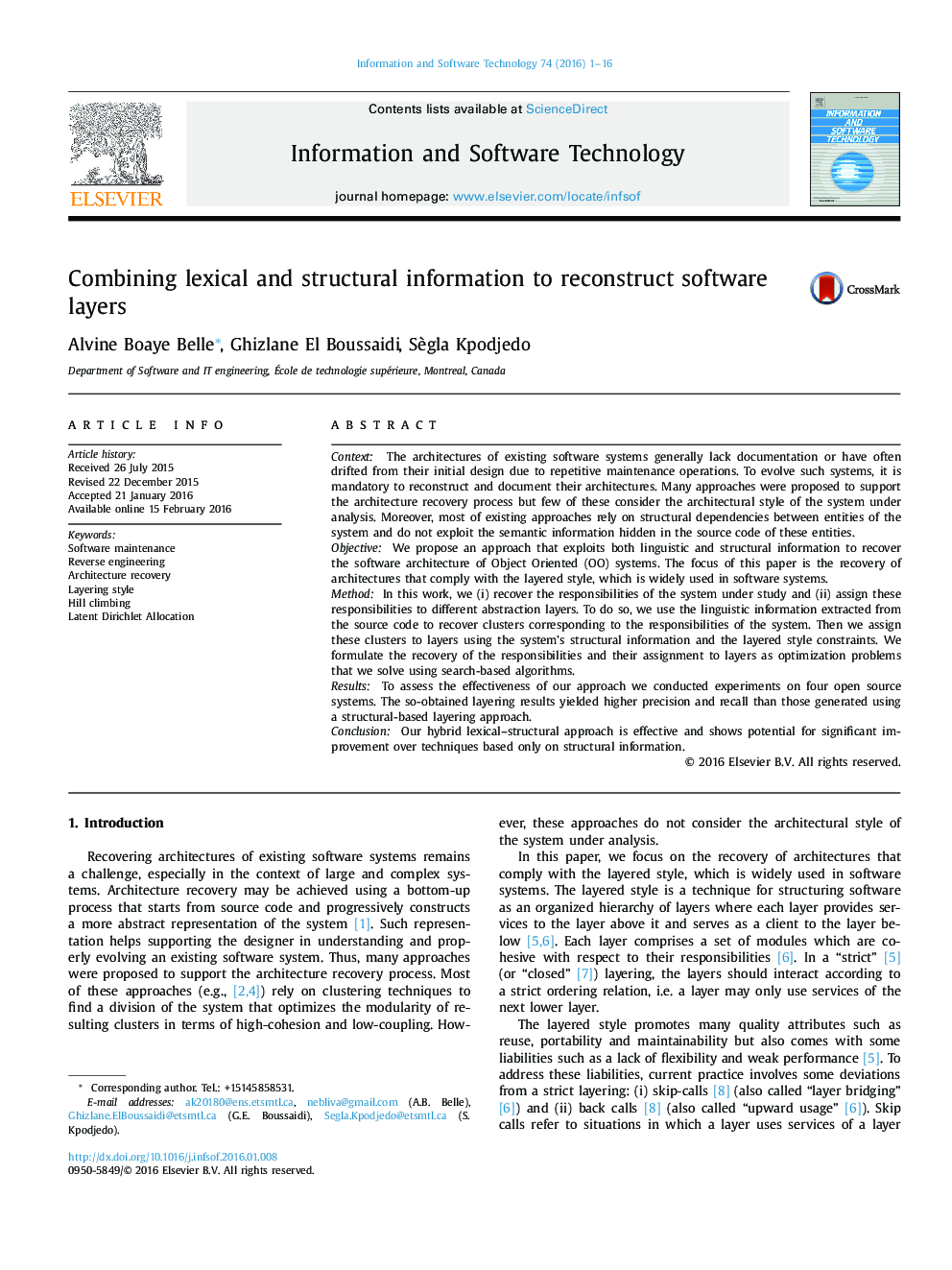| Article ID | Journal | Published Year | Pages | File Type |
|---|---|---|---|---|
| 550469 | Information and Software Technology | 2016 | 16 Pages |
ContextThe architectures of existing software systems generally lack documentation or have often drifted from their initial design due to repetitive maintenance operations. To evolve such systems, it is mandatory to reconstruct and document their architectures. Many approaches were proposed to support the architecture recovery process but few of these consider the architectural style of the system under analysis. Moreover, most of existing approaches rely on structural dependencies between entities of the system and do not exploit the semantic information hidden in the source code of these entities.ObjectiveWe propose an approach that exploits both linguistic and structural information to recover the software architecture of Object Oriented (OO) systems. The focus of this paper is the recovery of architectures that comply with the layered style, which is widely used in software systems.MethodIn this work, we (i) recover the responsibilities of the system under study and (ii) assign these responsibilities to different abstraction layers. To do so, we use the linguistic information extracted from the source code to recover clusters corresponding to the responsibilities of the system. Then we assign these clusters to layers using the system's structural information and the layered style constraints. We formulate the recovery of the responsibilities and their assignment to layers as optimization problems that we solve using search-based algorithms.ResultsTo assess the effectiveness of our approach we conducted experiments on four open source systems. The so-obtained layering results yielded higher precision and recall than those generated using a structural-based layering approach.ConclusionOur hybrid lexical–structural approach is effective and shows potential for significant improvement over techniques based only on structural information.
